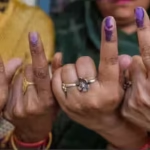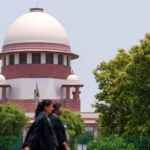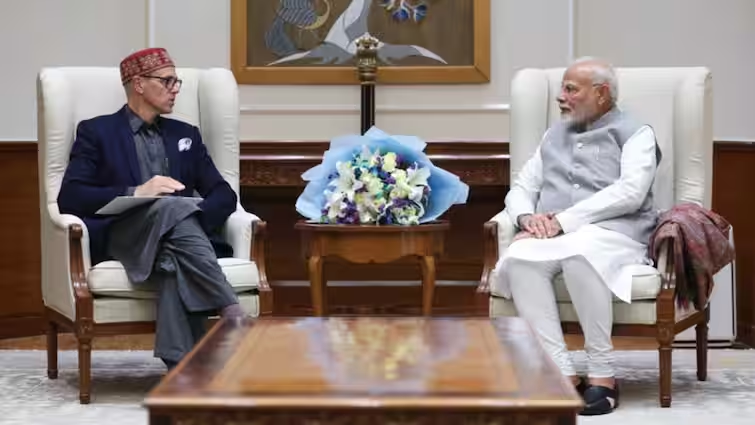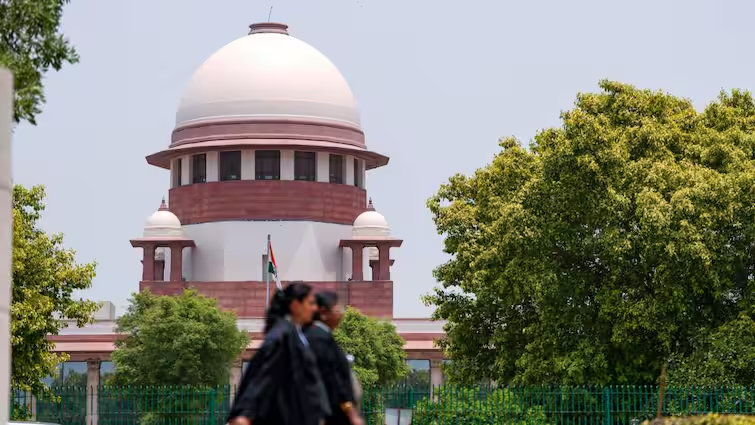Omar Abdullah Meets Prime Minister Narendra Modi for the First Time Since Pahalgam Terror Attack, Discusses Jammu and Kashmir Situation
In a significant political development, Jammu and Kashmir Chief Minister Omar Abdullah met Prime Minister Narendra Modi in New Delhi on Saturday to discuss a range of issues, with a special focus on the recent tragic terror attack in Pahalgam. This high-profile meeting marked the first official interaction between the two leaders following the April 22 massacre that shocked the nation and claimed the lives of 26 individuals, most of whom were tourists.
According to sources cited by the Press Trust of India (PTI), the meeting was held at the Prime Minister’s official residence and lasted for about half an hour. The closed-door discussions centered on the prevailing security situation in the Union Territory of Jammu and Kashmir, with both leaders reportedly expressing concern over the recent escalation in militant activity.
The Jammu and Kashmir National Conference (JKNC), Omar Abdullah’s party, confirmed the meeting through a post on social media platform X (formerly Twitter), stating, “Chief Minister J&K Omar Abdullah called on Prime Minister Narendra Modi in New Delhi and discussed various issues, including last week’s Pahalgam terror attack.”
This meeting comes amid heightened tensions in the Kashmir Valley, where fear and uncertainty have gripped the public after the deadly attack in the popular tourist destination of Pahalgam, located in the Anantnag district of South Kashmir. The brutal assault, carried out by unidentified militants, targeted a group of tourists and local service providers, leaving behind a trail of bloodshed and sorrow. Among the deceased was a pony ride operator named Adil Hussain Shah, whose death has since become a symbol of both bravery and tragedy in the face of terrorism.
Farooq Abdullah Pays Tribute to Victim, Emphasizes Kashmiriyat
In a parallel development, National Conference President and former Jammu and Kashmir Chief Minister Dr. Farooq Abdullah paid a condolence visit to the home of Adil Hussain Shah in Hapatnaar, a village in South Kashmir’s Anantnag district. Shah, who was known for offering pony rides to tourists in the Pahalgam area, was one of the many innocent lives lost in the attack.
Dr. Abdullah, who was accompanied by local party leaders and supporters, paid homage to Shah and described him as a martyr. Speaking to the media after the visit, he said, “Adil was not afraid of the guns wielded by these inhuman attackers. He sacrificed his life while helping others. This is what humanity means. This is the essence of Kashmiriyat.”
Calling for resilience among the people of Jammu and Kashmir, he urged citizens not to succumb to fear in the face of terrorism. “Those who fear are already dead,” he remarked. “We must face such acts of brutality with unwavering courage. Only then can we hope for peace, prosperity, and progress. Our fight against terrorism must continue with unity and determination.”
Condemnation of Attackers: “They Have Killed Humanity”
Expressing strong condemnation of the perpetrators behind the attack, Dr. Abdullah said, “Those who carried out this heinous act and those who supported it have committed a crime against humanity. They are enemies of peace, and their actions are a stain on our civilization.”
In a fiery remark, he added, “The gates of hell are open for them. These people can never find a place in heaven. They have murdered innocent lives and shattered families. There can be no justification for such barbarism.”
However, when questioned about possible retaliatory action by India against Pakistan, which has often been accused of harboring and supporting militant elements across the border, Abdullah refrained from making direct comments. “That is a matter for the Prime Minister and the central government to decide,” he said, underlining that such decisions require careful consideration and national consensus.
Comments on Bilawal Bhutto-Zardari and the Indus Waters Treaty
Dr. Abdullah also responded to recent provocative statements made by Pakistan Peoples Party (PPP) leader Bilawal Bhutto-Zardari. After India suspended its participation in the Indus Waters Treaty (IWT) in the aftermath of the attack, Bhutto-Zardari reportedly said, “The Indus is ours and will remain ours – either our water will flow through it or their blood.”
Reacting to the inflammatory remark, Abdullah dismissed Bhutto-Zardari’s rhetoric as political posturing. “He will continue to make such statements for his domestic audience,” he said. “But we cannot let such remarks dictate our national agenda. We must stay focused on what is best for our people and our country.”
The Indus Waters Treaty, brokered by the World Bank in 1960, governs the sharing of river waters between India and Pakistan. In recent years, many Indian leaders, including Dr. Abdullah, have raised concerns over the treaty’s limitations and its impact on development projects in Jammu and Kashmir.
“We have long demanded a reassessment of the IWT,” he emphasized. “Our region has suffered due to the restrictions imposed by this treaty. While we are not suggesting that water supplies to Pakistan should be halted, we firmly believe that we have the right to utilize our natural resources for the benefit of our people.”
Need for Revisiting the Treaty: “Our Rivers, Our Right”
Highlighting the water crisis in parts of Jammu, Abdullah explained how the treaty has prevented the region from addressing its pressing needs. “We attempted to divert water from the Chenab River to areas in Jammu, but the World Bank declined to support us, citing the treaty. Today, we are again looking at this opportunity, and we must assert our rights over these rivers,” he said.
He also stressed the importance of harnessing hydroelectric potential. “We have the natural capacity to generate thousands of megawatts of electricity through our rivers. But the treaty has hampered project development, as Pakistan frequently raises objections,” he noted. “We cannot allow our growth and infrastructure to remain hostage to their objections. It’s time we revisit the terms of this outdated agreement, and God willing, we will succeed in doing so.”
When asked whether recent tensions could escalate into a conflict between the two nuclear-armed neighbors, Abdullah chose not to speculate. “I have no answer to such questions,” he said, refusing to stoke fears of war but clearly recognizing the gravity of the situation.
Dr. Abdullah Meets Tourists in Pahalgam, Promotes Normalcy
Later in the day, Dr. Farooq Abdullah visited Pahalgam, the site of the recent attack, to interact directly with tourists and boost public morale. He was seen conversing with visitors, offering reassurances of safety, and even posing for selfies. The former chief minister’s gesture was widely appreciated as an attempt to restore confidence in Kashmir’s tourism sector, which has long been the backbone of the region’s economy.
“We must show the world that Kashmir remains a land of peace and hospitality,” he said during his visit. “This valley has always welcomed guests with open arms, and we must not allow violence to change our identity.”
A Defining Political Moment
Saturday’s meeting between Omar Abdullah and Prime Minister Modi, coupled with Farooq Abdullah’s strong public engagement, signals a renewed political push from the National Conference to address Kashmir’s security, developmental, and diplomatic challenges in the wake of the Pahalgam attack.
Observers believe that this interaction could pave the way for broader consultations between regional and national leadership as the central government reassesses its Kashmir policy in light of recent developments. With the region facing both internal threats and external pressures, cooperation between New Delhi and Srinagar is likely to play a crucial role in shaping Jammu and Kashmir’s future.
As the Union Territory continues to mourn the victims of the Pahalgam tragedy, leaders across the political spectrum have called for unity, resilience, and a steadfast commitment to peace. Whether these calls will translate into effective policy changes remains to be seen, but for now, the message is clear: Kashmir must stand strong against the forces of terror, and its leaders must rise to the occasion.














